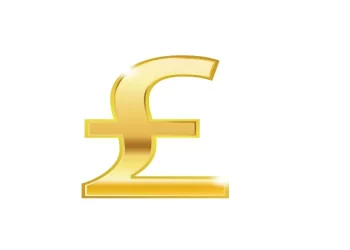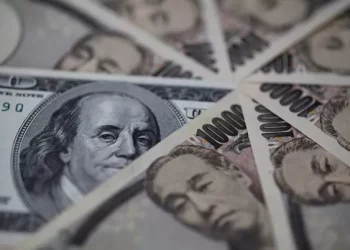The global economic landscape is intricately connected, and one of the key elements in this complex web is the exchange rate between different currencies. For businesses, investors, and individuals alike, keeping a close eye on currency exchange rates is crucial for making informed financial decisions. In this article, we will delve into the specifics of the current RMB exchange rate, with a particular focus on the conversion of 15 Chinese Renminbi (RMB) to Hong Kong Dollars (HKD).
The Basics of Exchange Rates
Before we explore the specific exchange rate of 15 RMB to HKD, it’s essential to understand the basics of exchange rates. An exchange rate is the value of one currency expressed in terms of another. It is influenced by various factors, including economic indicators, interest rates, geopolitical events, and market sentiment.
In the case of RMB to HKD, we are looking at the conversion between the Chinese Renminbi and the Hong Kong Dollar. Both currencies play pivotal roles in the global financial system, and their exchange rate is closely monitored by businesses engaged in cross-border trade, investors with international portfolios, and travelers.
Factors Influencing RMB Exchange Rates
Several factors contribute to the fluctuations in the RMB exchange rate, and understanding them is crucial for predicting and interpreting currency movements.
Economic Indicators: Key economic indicators, such as GDP growth, inflation rates, and employment figures, impact a country’s currency value. China’s economic performance, for example, significantly influences the strength of the RMB.
Interest Rates: Central banks’ decisions on interest rates play a pivotal role in determining currency values. Higher interest rates in China, for instance, may attract foreign capital, strengthening the RMB.
Trade Balances: The balance of trade, or the difference between a country’s exports and imports, affects its currency value. China’s trade surplus or deficit can impact the RMB exchange rate.
Political and Geopolitical Events: Political stability and geopolitical events can influence investor confidence and impact a currency’s value. Trade tensions, international relations, and government policies all play a role in the RMB’s performance.
Current RMB Exchange Rate
As of the latest available data, the current exchange rate for 1 Chinese Renminbi (RMB) is approximately 1.10 Hong Kong Dollars (HKD). This rate, however, fluctuates based on the dynamic factors mentioned earlier. To calculate the value of 15 RMB in HKD, one would multiply the amount in RMB by the current exchange rate.
15RMB×1.10HKD/RMB=16.5HKD
Therefore, as of the latest data, 15 RMB is equivalent to approximately 16.5 HKD. It’s important to note that exchange rates are subject to change, and it is advisable to check real-time rates for the most accurate and up-to-date information.
Impact of RMB to HKD Exchange Rate on Businesses
The exchange rate between RMB and HKD has significant implications for businesses engaged in cross-border trade between mainland China and Hong Kong. Fluctuations in the exchange rate can impact the cost of goods, profit margins, and competitiveness in the market.
Importers and Exporters: Businesses that import goods from China or export products to China are directly affected by exchange rate movements. A stronger RMB relative to the HKD can make Chinese imports more expensive for Hong Kong businesses, while a weaker RMB can benefit exporters.
Currency Risk Management: To mitigate the impact of exchange rate volatility, businesses often employ currency risk management strategies. These may include using financial derivatives, entering into forward contracts, or diversifying currency exposures.
Market Competitiveness: The exchange rate also influences the competitiveness of businesses in international markets. A favorable exchange rate can enhance a company’s competitiveness by offering more attractive pricing for its products or services.
Individual Perspectives: Travel and Investments
Beyond the realm of business, individuals also feel the effects of currency exchange rates, particularly when it comes to travel and investments.
Travel: For individuals traveling from mainland China to Hong Kong or vice versa, the exchange rate determines the purchasing power of their currency. A stronger RMB means more favorable exchange rates for Chinese travelers in Hong Kong, while a weaker RMB may impact their spending capacity.
See Also:Current RMB Exchange Rate: What Is Yuan to Kina?
Investments: Investors with holdings in either RMB or HKD are impacted by exchange rate movements. For example, if an investor holds RMB-denominated assets and the RMB strengthens against the HKD, the value of those assets in HKD terms increases.
Historical Perspectives and Trends
Analyzing historical exchange rate trends provides valuable insights into potential future movements. Looking at the historical performance of the RMB to HKD exchange rate allows us to identify patterns, understand long-term trends, and make more informed predictions.
Stability and Pegging: Hong Kong operates under a currency board system, where the HKD is pegged to the US Dollar (USD). This pegging arrangement provides a level of stability for the HKD, and movements in the RMB to HKD exchange rate often reflect broader trends in the USD to RMB rate.
Currency Liberalization in China: China has gradually been liberalizing its currency, allowing the RMB to be more influenced by market forces. This shift has led to increased volatility in the RMB exchange rate, impacting its relationship with the HKD.
Forecasting the Future: Considerations and Risks
While predicting future exchange rate movements with absolute certainty is challenging, analysts consider various factors to make informed forecasts.
Economic Indicators: Monitoring economic indicators such as GDP growth, inflation rates, and trade balances helps forecast the general direction of a currency.
Central Bank Policies: The monetary policies and interventions of central banks, including the People’s Bank of China, play a crucial role in influencing exchange rates.
Global Events: Geopolitical events, trade negotiations, and global economic conditions can impact investor sentiment and influence currency values.
Technological Advancements: The increasing role of technology in financial markets, including algorithmic trading and high-frequency trading, can contribute to short-term volatility.
Conclusion
In conclusion, understanding the current RMB exchange rate, especially the conversion of 15 RMB to HKD, requires a comprehensive analysis of economic factors, historical trends, and global events. Businesses, investors, and individuals should stay informed about these dynamics to make sound financial decisions.
As the global economic landscape continues to evolve, the RMB to HKD exchange rate will undoubtedly experience fluctuations. Keeping a watchful eye on the market, employing risk management strategies, and staying abreast of economic indicators will be essential for navigating the complexities of the currency exchange arena. Whether you are a business owner, investor, or traveler, a nuanced understanding of exchange rates is an invaluable tool in today’s interconnected world of finance.
Related Topics:
Current RMB Exchange Rate: What is RMB to Birr
Current RMB Exchange Rate: Understanding Yuan to CFA Dynamics
Current RMB Exchange Rate: What Is Yuan to Egyptian Pound



























